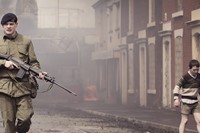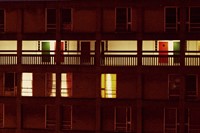On the day his acclaimed debut hits the big screen, director Yann Demange talks creating characters that "feel real" and his directing hero Jacques Audiard
"Jacques Audiard is my favourite living director. I love The Beat My Heart skipped for the way it makes me feel, and A Prophet; his films in general. What I love about him is that the people always feel real, whatever situation they’re thrown in. He humanises everybody in the films and you can tell he loves people, he tries to understand them and their situations and their dilemmas. That is something to aspire to for me. I don’t want to tell the same type of stories but the tone of his films and the way he achieves his characters is phenomenal and I do always have that at the back of my mind. I recently met him and had dinner with him – I speak fluent French – and it was quite astonishing. He'd sent me an email to say he had seen the film and loved it and that was very humbling; probably the highlight of my life, and my career, because his films are as good as it gets."
"The tone of Audiard's films and the way he achieves his characters is phenomenal – I always have that at the back of my mind" – Yann Demange
For '71, his first feature film, director Yann Demange has entered the world of cinema all guns blazing, both literally and metaphorically. A buttock-clenching, highly emotive action thriller set in Belfast during the Troubles, the film tells the story of young soldier Gary Hook (a mesmerising Jack O’Connell) who finds himself accidentally abandoned by his unit and forced to roam the city's streets for the night, confronted by danger and deceit at almost every turn. "I wanted you to feel it in the way Gary would," Demange says of the film's immersive approach, "to shock you in the way he would feel shocked; to smack you in the face and throw you in." This is something he achieves wholeheartedly, thanks to long cuts, hand-held camerawork and clever editing, not to mention an exceptional cast and script by Gregory Burke.
But it is not merely the dramatic punch it packs that makes '71 so memorable. Whether you like or dislike war dramas or sit somewhere in the middle, what gives the film such a unique universality is its ability to find humanity in deeply inhumane circumstances; to largely reserve judgment, instead shedding light and understanding on an array of individuals embroiled, for better or worse, in a conflict that has escalated far beyond their control. This is a talent that the half French, half Algerian Demange shares with his directing hero, the multiple-award-winning Jacques Audiard, and having already whipped up a deluge of praise and excitement with his accomplished feature-length debut, Demange looks set for similar heights.
'71 is out now.


